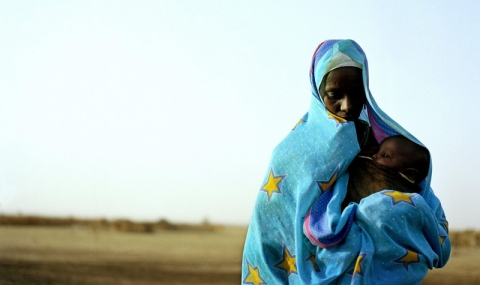Update #1: After the first two days of research with refugees
Hi everyone,
November was an eventful month. After the prior months of planning, coordinating and fundraising, in November, we finally launched our project to determine the rate of Post-Traumatic Stress Disorder (PTSD) in East African refugees currently living in San Diego. At this point we have successfully completed the first two days of research, and tomorrow will be Day #3.
So far:
- After collecting completed questionnaires on two dates in November at the Southern Sudanese Community Center of San Diego, we currently have over 100.
- We still need about 50 more.
- We hope to meet our sample goal tomorrow, Sunday, December 2nd, by collecting questionnaires at St Luke’s Episcopal Church and again at the community center.
- We are using two sections of the Harvard Trauma Questionnaire (HTQ). One asks about traumatic experiences, the other asks about symptoms, and we added a section for demographic questions. All information gathered is kept confidential.
- We are offering the HTQ in four different languages after meeting with success in getting it translated into Arabic, Somali and Swahili, as well as English.
- We have tried to approach this with as much sensitivity as possible. At each research event we have volunteers on hand to assist in the process, including mental health clinicians, and translators.
- When we reach the minimum number of 150 completed questionnaires, team members from National University, professional number-crunchers, will tabulate the data.
To have so many refugees willing to participate is remarkable and what we have asked them to do, we don’t take lightly. Sitting down and reading a questionnaire that lists nearly every sort of horrific event known to man is not an easy thing for anyone. For refugees from conflict zones, many of the experiences listed are all too familiar and well-known. Putting that on paper by answering YES or NO brings its own challenge. And we feel honored when participants are willing to go through this process as we know it is not an easy one.
The therapist in me wishes we could sit together, going through the questions item by item, able to discuss anything that comes up along the way, processing whatever needed to be processed as part of the questionnaire-completion process. But that isn’t the way research works. “Processing” will have to wait for the launch of the trauma recovery program.
So, my fingers are crossed for tomorrow, not only for us to reach our desired sample size, but also that we manage to convey warmth and care while we are there.
Thank you so much to all who’ve supported this project. We couldn’t have done it without you.
With gratitude,
Barbara English
Executive Director, Living Ubuntu
http://livingubuntu.org
(949) 891-2005
[Ubuntu] n.
Every human being truly becomes a human by means of relationships with other human being.
Powered by WPeMatico
